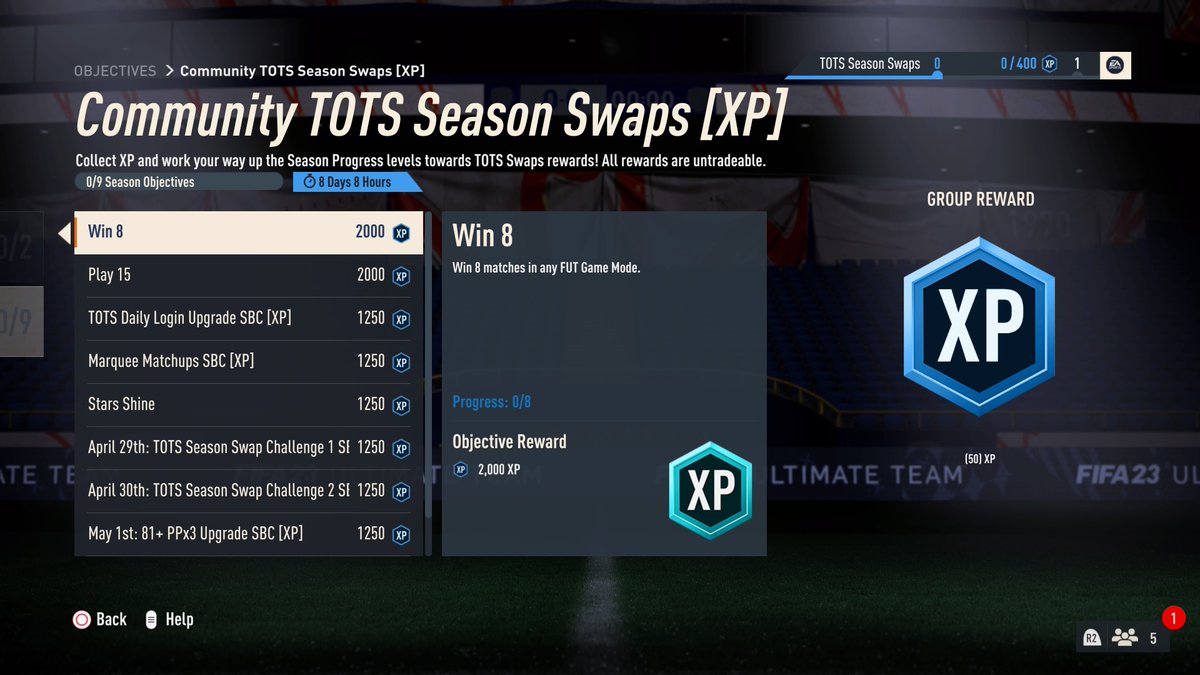Football, or soccer as it is known in some parts of the world, is a sport that thrives on passion, skill, and fair play. At the heart of maintaining order and ensuring the integrity of the game are fut sheriffs—referees who play a pivotal role in enforcing the rules. From the local leagues to the grand stages of the World Cup, these officials ensure that the spirit of the game remains unblemished. In this article, we delve deep into the world of fut sheriffs, exploring their roles, responsibilities, and the challenges they face.
As the global spotlight increasingly shines on football, the importance of referees in maintaining the balance of the game cannot be overstated. They are the unsung heroes who keep the game running smoothly, making split-second decisions that can alter the course of a match. Understanding their role is crucial for players, fans, and stakeholders alike.
In this comprehensive guide, we will explore everything you need to know about fut sheriffs, from their training and qualifications to the evolving technology that aids them in their duties. Whether you're a casual fan or a dedicated enthusiast, this article will provide you with valuable insights into the world of football refereeing.
Read also:Krisha Garvey A Rising Star In The Entertainment Industry
Table of Contents
- Biography of Fut Sheriff
- The Role of Fut Sheriff
- Training and Qualifications
- Challenges Faced by Fut Sheriffs
- The Role of Technology in Refereeing
- Variations in Refereeing Styles
- Key Statistics and Insights
- Famous Fut Sheriffs in History
- The Future of Fut Sheriffing
- Conclusion and Call to Action
Biography of Fut Sheriff
Data and Facts About Fut Sheriffs
Before we dive into the specifics of what a fut sheriff does, let’s first take a look at the background and journey of these referees. Below is a table summarizing some key data points:
| Aspect | Details |
|---|---|
| Age Requirement | Minimum of 18 years old to start refereeing competitive matches |
| Physical Fitness | Must pass rigorous fitness tests annually |
| Training Duration | Average of 3-5 years to reach professional levels |
| Salary Range | $50,000 to $200,000 annually for top-tier referees |
Fut sheriffs come from diverse backgrounds, but they share a common passion for the game and a commitment to upholding its rules. Their journey is often challenging, requiring dedication, resilience, and a deep understanding of the sport.
The Role of Fut Sheriff
Enforcing the Laws of the Game
The primary responsibility of a fut sheriff is to enforce the laws of the game as outlined by FIFA. This includes:
- Maintaining order on the field
- Ensuring fair play
- Managing player behavior
- Deciding on fouls, penalties, and other critical moments
Referees must remain impartial and make decisions based solely on the rules, often under immense pressure from players, coaches, and spectators.
Training and Qualifications
Becoming a Fut Sheriff
Becoming a fut sheriff is no easy feat. It requires extensive training and education. Aspiring referees must:
- Pass theoretical exams on the laws of the game
- Undergo physical fitness assessments
- Participate in practical training sessions
- Gain experience through lower-level matches
Only the most dedicated and skilled individuals progress to the highest levels of refereeing, where they officiate in prestigious competitions like the UEFA Champions League and the FIFA World Cup.
Read also:Andrei Iosivas The Rising Star In The Tech Industry
Challenges Faced by Fut Sheriffs
Dealing with Pressure and Criticism
One of the biggest challenges faced by fut sheriffs is the constant scrutiny and criticism from all sides. Fans, players, and media often question their decisions, especially in high-stakes matches. Referees must develop thick skin and remain composed under pressure.
Additionally, they face physical challenges, such as covering large distances during a match and maintaining peak fitness levels throughout the season.
The Role of Technology in Refereeing
Innovations in Fut Sheriffing
Technology has revolutionized the role of fut sheriffs, providing them with tools to make more accurate decisions. Some of the key technological advancements include:
- Video Assistant Referee (VAR)
- Goal-line technology
- Offside detection systems
These innovations have enhanced the accuracy of refereeing, reducing the margin for error and improving the overall quality of the game.
Variations in Refereeing Styles
Cultural Differences in Fut Sheriffing
Refereeing styles can vary significantly across different regions and cultures. In some countries, referees may adopt a more lenient approach, allowing the game to flow freely, while in others, they may enforce stricter rules to maintain discipline.
Understanding these variations is crucial for international referees who officiate in diverse environments. Adaptability and cultural awareness are key attributes for successful fut sheriffs.
Key Statistics and Insights
Data-Driven Fut Sheriffing
Statistics play an important role in evaluating the performance of fut sheriffs. Some key insights include:
- On average, a referee covers around 10-12 kilometers during a match
- VAR interventions have reduced incorrect decisions by approximately 20%
- Top referees officiate around 30-40 matches per season
These statistics highlight the physical and mental demands placed on referees and the impact of technology in improving decision-making.
Famous Fut Sheriffs in History
Legends of the Pitch
Throughout the history of football, several fut sheriffs have left an indelible mark on the sport. Some of the most famous include:
- Pierluigi Collina – Known for his authoritative style and fairness
- Howard Webb – Officiated in the 2010 FIFA World Cup Final
- Giovanni Trapattoni – A former player turned referee, renowned for his tactical acumen
These legends have set high standards for future generations of referees, inspiring them to strive for excellence.
The Future of Fut Sheriffing
Advancements and Innovations
As technology continues to evolve, the future of fut sheriffing looks promising. Innovations such as artificial intelligence and real-time data analysis could further enhance the accuracy and efficiency of refereeing.
Moreover, the focus on mental health and well-being is likely to increase, ensuring that referees receive the support they need to perform at their best.
Conclusion and Call to Action
In conclusion, fut sheriffs play a vital role in maintaining the integrity and fairness of football. Their dedication, skill, and commitment ensure that the game remains a spectacle enjoyed by millions around the world.
We invite you to share your thoughts and experiences in the comments section below. If you found this article informative, please consider sharing it with your friends and fellow football enthusiasts. Additionally, explore our other articles for more insights into the beautiful game.
Together, let’s celebrate the unsung heroes of football—the fut sheriffs who keep the game running smoothly.


